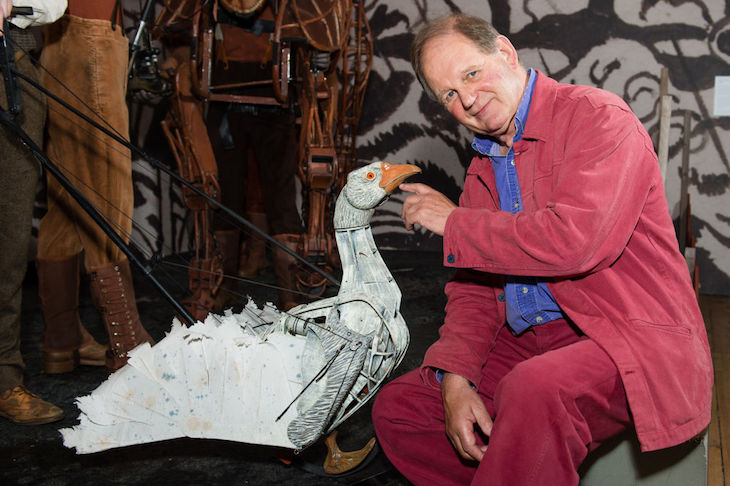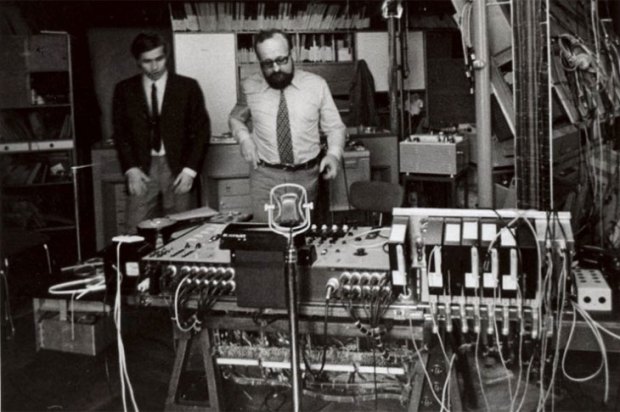It’s sneaky, the way in which the BBC, so much regarded as part of the family as to be nicknamed ‘Auntie’, has introduced the need to login (or register) whenever you want to listen to something on iPlayer. Maybe I’m doing something wrong because the alert message assures me I will be kept logged in, and that I should only have to login once. But even that is once too much. After all, until now, we’ve had the chance to listen again to whatever we fancy with very little fuss and almost instantly. That freedom feels very different if you have to rummage around in your memory for the password and then ensure you’ve keyed it in correctly — and especially if you consider that this means the no-longer-quite-so-benign Auntie will now be able to trace not just your tastes, inclinations and habits of mind but also your daily routine.
The technology behind digital listening is amazing. We take so much of it for granted, the speed, the accessibility, the flexibility, while the electronic wizards who make this all possible are not paid enough or acknowledged enough (do we even know their names?) for the ways in which they have transformed our everyday lives. But it’s worth pondering. Once upon a time we could listen again without being monitored. Now Big Auntie has the potential to listen in on our every connection.
At first I thought little of the change, assuming it would soon become automatic, the password remembered on my computer, the bother and time it takes of no great concern. But every time I’m obliged to key in the password, it makes me think about its implications. How we listen is being changed. How we receive radio is altering. How the BBC treats its audience is undergoing an extraordinary makeover.
It’s not all portents of gloom, however. Three cheers should be raised for Radio 2, which this week has not only provided something for younger listeners, at a time of day and year when they might actually be listening, but it’s also a drama, not heard on the network for four years — since Tom Stoppard’s specially commissioned play inspired by Pink Floyd. Once upon a time Radio 2 (and its former incarnation the Light Programme) was the go-to place for soaps, comedy and adventure serials. Now, it feels really odd to tune in to 88–90.2 FM in the morning and instead of music or Jeremy Vine talking to Vince Cable (or the like), to discover instead the brilliant children’s writer Michael Morpurgo introducing an adaptation of his book, Alone on a Wide Wide Sea (directed by Frank Stirling). He’s such a natural storyteller and can draw you in straightaway, with his voice, so warm and natural, his ease of manner, his sense of phrasing and his words, simple but direct, as if he were talking to you, and you alone.
This was less a drama than an old-fashioned tale told by a master (Morpurgo himself with Ian McMillan as the radio adapter), with the help of no less than Toby Jones and Jason Donovan. Arthur (played by Donovan) is looking back on his life as an orphan, one of thousands transplanted to Australia and other Commonwealth countries from the 1850s to 1970. The idea was to give them a chance to find a new life but in reality they were cheap labour for greedy farmers like the wonderfully named Mr ‘Piggy’ Bacon, who were paid to take them in. Arthur has a miserable time, but of course with Morpurgo there is always redemption and hope and, amid the vicious characters (and the idiocy of those in charge), there are always real people, kind and generous, not in a grand way but just because that’s how we all get along. I just hope the kids managed to find it — and were not put off by the songs, taken from ‘The Ballads of Child Migration’, which were beautifully sung but were incongruously grown-up in style for what I thought was intended to draw in younger listeners.
Also on Radio 2, Janice Long’s new series, Long Walk With… (produced by Mark Simpson) took us this week to the back streets of Liverpool in the company of Holly Johnson (of Frankie Goes To Hollywood), who was born there, with perfect timing, in 1960. The city he knew as a child had not yet woken up to the megabucks it could make out of the Beatles, so he walked past Lennon’s house without paying it too much attention. The Cavern had not yet been turned into a mecca for Beatles fans. Johnson’s club of choice as a teenager was called, not so wistfully, Eric’s.
The first gig he went to was David Bowie, skiving off school to queue for a ticket at the Liverpool Empire. It gave him the confidence to realise it was OK to be different. Walking him back into his past was revealing as it became obvious how much music was part of his growing up, from first hearing T.Rex on his sister’s black-and-white record-player to being fascinated not by the Daleks but by Delia Derbyshire’s extraordinary radiophonic theme for Doctor Who.
Got something to add? Join the discussion and comment below.
Get 10 issues for just $10
Subscribe to The Spectator Australia today for the next 10 magazine issues, plus full online access, for just $10.
You might disagree with half of it, but you’ll enjoy reading all of it. Try your first month for free, then just $2 a week for the remainder of your first year.














Comments
Don't miss out
Join the conversation with other Spectator Australia readers. Subscribe to leave a comment.
SUBSCRIBEAlready a subscriber? Log in